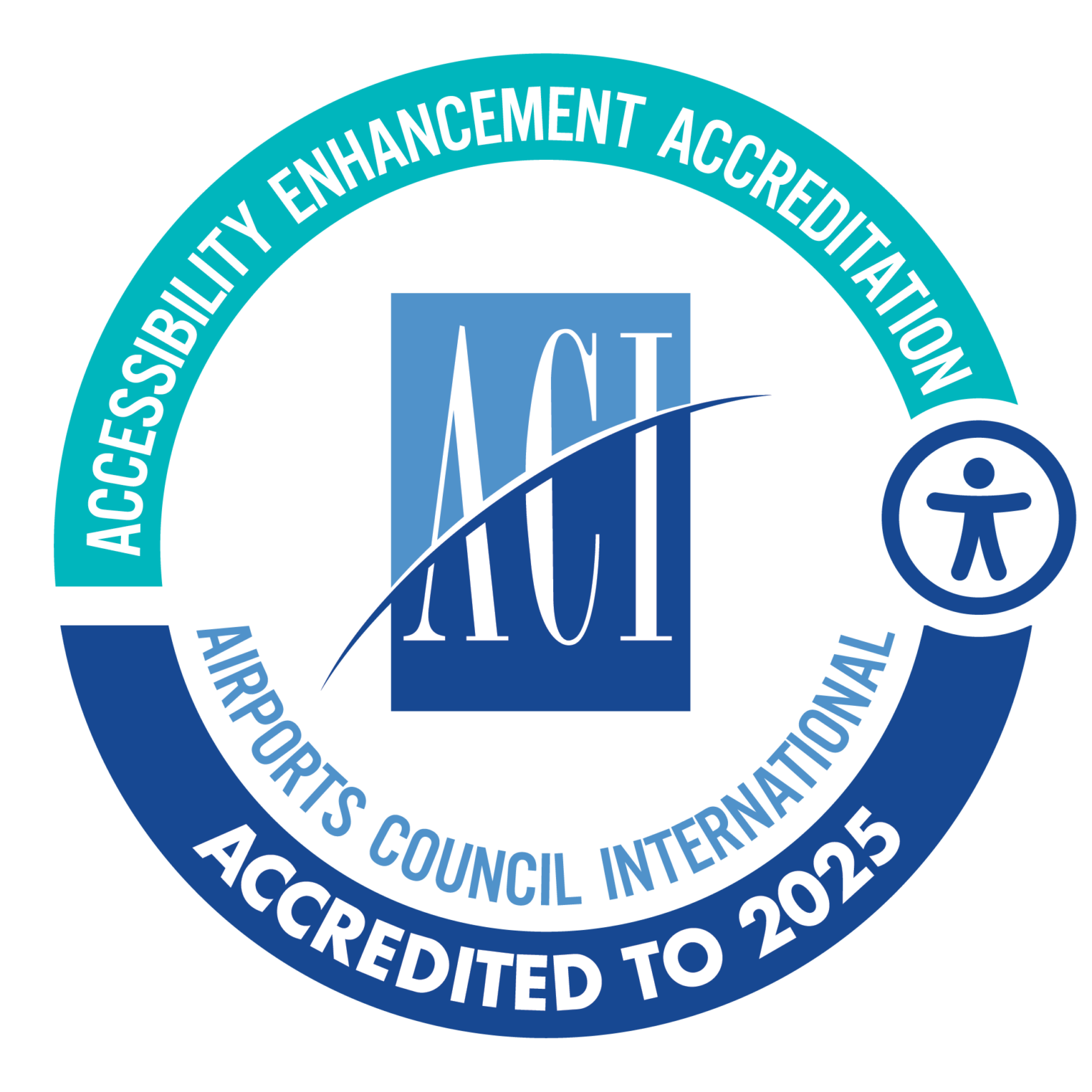ACI World is fully committed to building a more accessible and inclusive air transport system. Our members recognize that people with disabilities and those with reduced mobility require a focus on the design of accessible infrastructure and an inclusive passenger journey.
ACI World works closely with accessibility advocacy groups, members and international partners to develop resources and best practices that can help and guide airports in reducing barriers to accessibility, and to enhance the global regulatory framework. The topic of accessibility for passengers with disabilities and reduced mobility is driven by the ACI World Facilitation and Services Standing Committee.
Accessibility Enhancement Accreditation program

ACI World’s Accessibility Enhancement Accreditation program provides a continuous path of improvement for airports in the area of accessibility for passenger with disabilities.
Accreditation is designed to help airports measure, evaluate, and improve their accessibility management and culture. Developed by ACI World with input from airport members, industry partners, and accessibility advocacy groups, the program is based on existing international best practices and recommendations, including those put forward in the ACI Airport and Persons with Disability Handbook.
Accessibility Use Cases
ACI World has gathered accessibility use cases from its members that can be referred to by other airports looking to implement similar initiatives. They can be used as guidance and examples of best practices in enhancing accessibility and assistance to persons with disabilities in the airport environment.
Accessibility Publication
Airports & Persons with Disabilities Handbook (2018)
This handbook is primarily addressed to airport operators. It is intended to help airports enhance the accessibility of air travel for persons with disabilities, including those with reduced mobility.
Accessibility Training
Accommodating Passengers with Disabilities (APD) Workshop
This workshop will provide an introduction to US disability rights legislation, architectural accessibility standards, adaptive information technology and how to appropriately accommodate a wide range of customers with disabilities. Included will be a Disability Awareness Module with demographic information and findings from the latest Open Doors Organization Study on US Travelers with Disabilities as well as teaching appropriate language and customer service skills.
Passengers with Reduced Mobility (PRM) Workshop
This workshop provides an overview of applicable international rules and best practices, the basic principles and updates. The course highlights in particular the interrelation between European and United States approaches to PRM at airports. Course participants will analyse the PRM program at their own airport and identify possible short comings, discuss best practices and propose solutions to resolve the problems they encounter.
Certificate in Airport Accessibility
The Certificate in Airport Accessibility is designed to assist airport operators to make their airports more accessible for persons with disabilities, including those with reduced mobility. It covers the key infrastructure and architectural factors to consider when designing new airport facilities or improving existing ones. It also addresses operational and organisational measures designed to improve the travel experience for persons with disabilities. The course covers both the simple ideas that can improve the overall airport experience for persons with disabilities as well as more innovative and advanced aids and supports.
Customer Service for Travellers with Disabilities
The Customer Service for Travellers with Disabilities course covers the critical elements of providing customer service to travellers with disabilities in an airport setting. It is designed to equip all customer facing staff at airports with the skills they need to more confidently and effectively approach and interact with travellers with disabilities or special needs.
